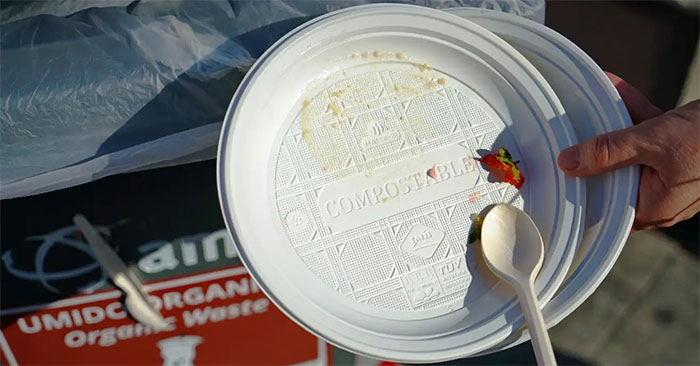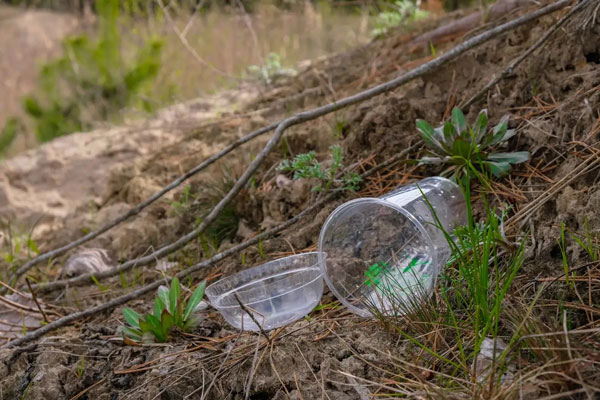Recently, many individuals and organizations have argued that climate change is largely driven by human activities, particularly due to the excessive production of plastics derived from petroleum, which has a severely negative impact on the environment, climate, and even personal health. Therefore, when hearing about a new type of plastic made from plants that is marketed as 100% biodegradable, many people are likely to feel more at ease. However, the reality seems to contradict the advertising claims regarding its environmental safety.
The market for biodegradable plastics is being evaluated as having significant growth potential, especially as more people become aware of the adverse effects of traditional plastics on the environment and health. Many major plastic manufacturers worldwide have recognized this trend and introduced products advertised as 100% plant-based, with Coca-Cola being one of them, having introduced its biodegradable plastic bottle last year.

However, in reality, the term “biodegradable” in biodegradable plastics lacks a standardized definition. It refers to plastics produced from non-petroleum sources such as corn and wheat or, more simply, plastics that can decompose or convert into organic matter. This definition also includes plastics with a significant petroleum-derived component, where the biological portion constitutes only a small fraction. Coca-Cola has been cited as an example, having produced bottles containing only 30% plant-based plastic while still labeling them as “Plant bottles” for nearly a decade.
Another issue is that these biodegradable plastics cannot be decomposed in the same way as traditional plastics. The reason is that they can contaminate other types of plastics, rendering all that waste non-recyclable. Many companies, such as Greenware, boast that their plant-based plastic bottles are recyclable, yet they note that they cannot be converted into organic matter using conventional methods. Therefore, the claim of biodegradability is often rendered useless for most average consumers, as only 27% of the U.S. population currently has access to and can utilize professional composting methods. Furthermore, if the production process is not carefully monitored, it can still generate greenhouse gas emissions comparable to traditional plastic production. A recent study published in Science Direct also revealed that biodegradable plastics contain harmful chemicals necessary for shaping the products. The conclusion of this study is that both types of plastics are equally toxic.

Moreover, all plastics are still plastics, and although biodegradable plastics may decompose faster under ideal conditions, they still cause harm when carelessly discarded into the environment, particularly to wildlife. Similar to traditional plastics, biodegradable plastics can also break down into microplastics, posing risks if ingested passively by living organisms. Numerous articles on platforms like Tinhte have warned about the health risks associated with microplastics for both animals and humans.

The conclusion drawn by this research group is that biodegradable plastics merely serve as a distraction for users from the larger issues humanity is facing. These issues include rampant waste disposal and the increasing frequency of crises caused by climate change. What is truly needed is to develop and expand recycling systems or systems that improve product reuse. At this moment, with half-hearted production and intentional confusion of concepts, it is not enough to effect a groundbreaking change concerning plastic products.


















































